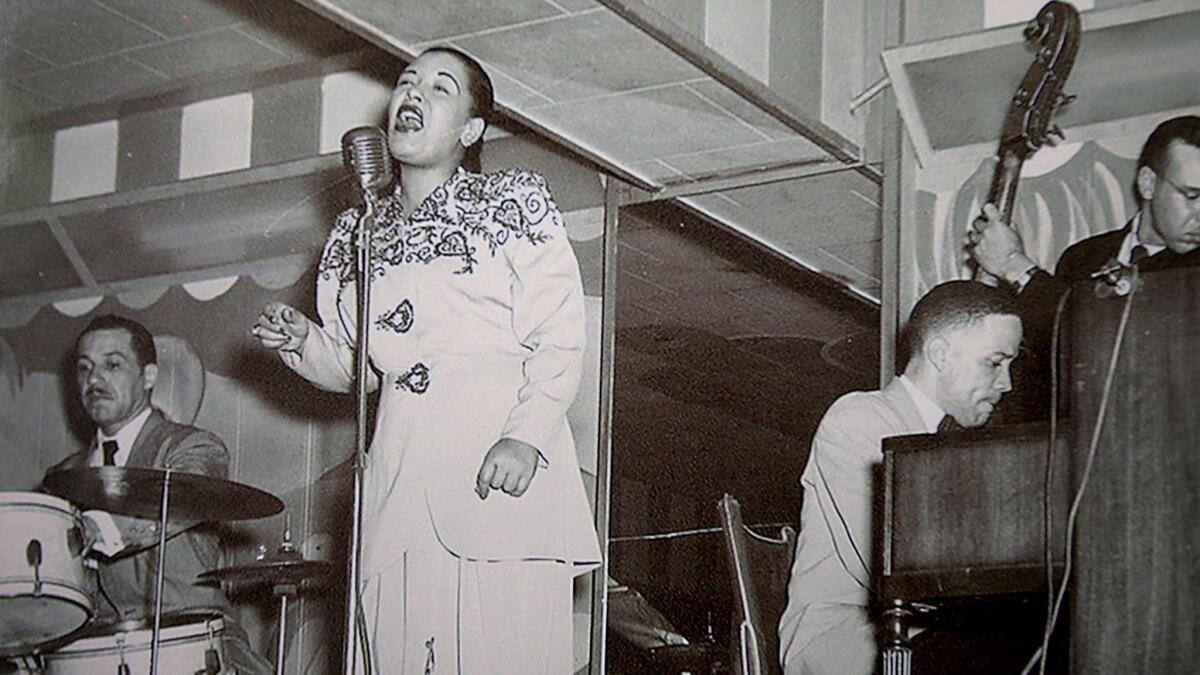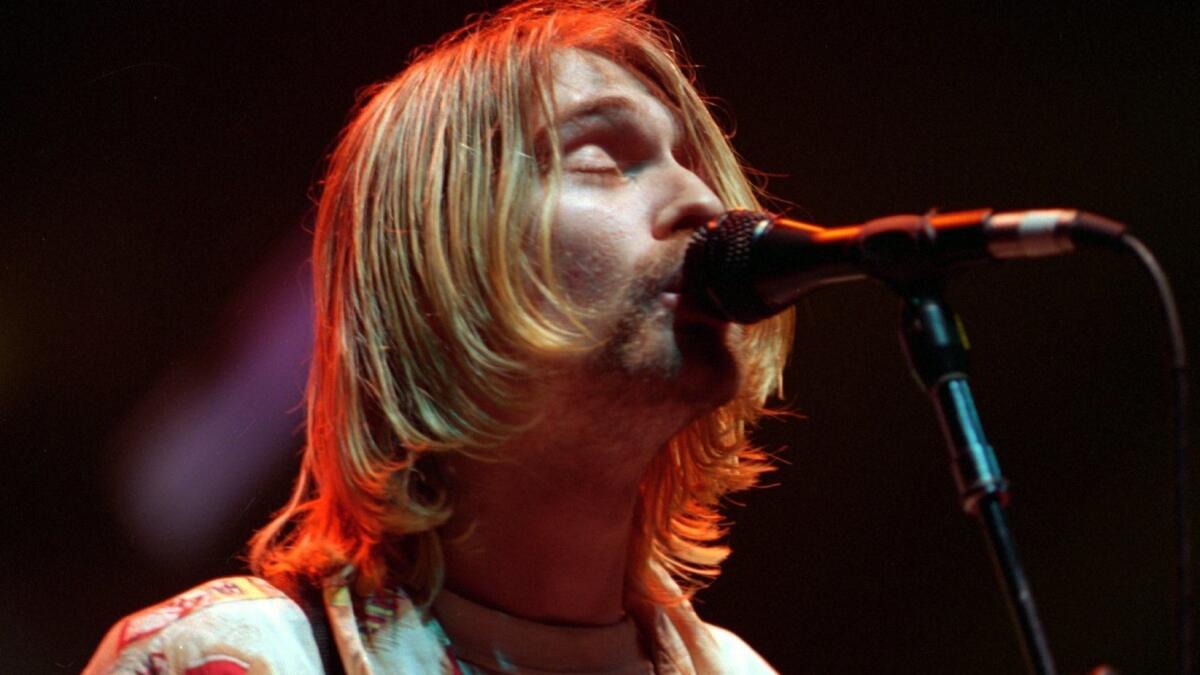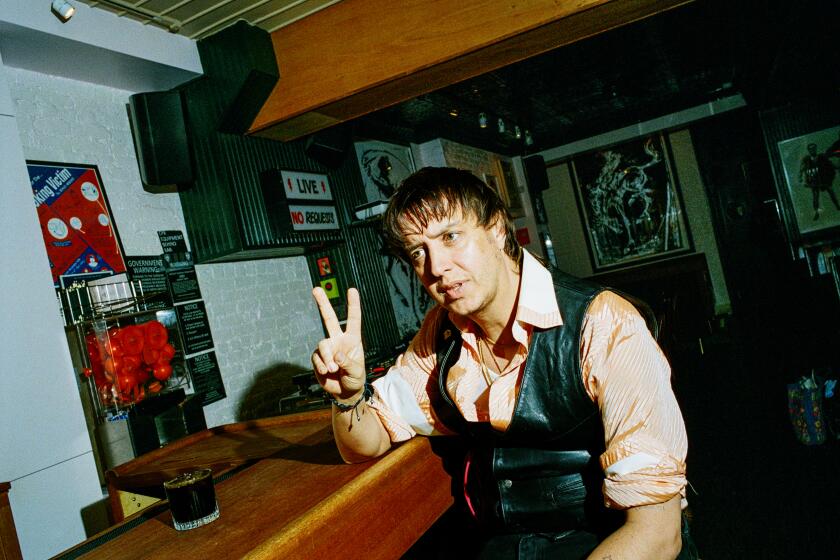Report: Universal Music Group covered up destruction of irreplaceable master tapes in 2008 fire

In stark contrast to official statements offered more than a decade ago, a 2008 fire at Universal Studios Hollywood destroyed a staggering number of original master recordings stored there by the Universal Music Group, according to an investigation published Tuesday by the New York Times Magazine.
The devastation, which company officials downplayed or outright dismissed after the fire was extinguished 11 years ago this month, is breathtaking in scope, amounting to what the new report describes as “the biggest disaster in the history of the music industry.”
“This is a tragedy,” Elliot Roberts, longtime manager to Neil Young, told The Times. Young did not lose any master recordings in the fire. “You can yell, you can jump up and down, you can look to insurance, you can sue,” said Roberts, “but if you lose a master, you’re [sunk].”
UMG quickly disputed the New York Times report, citing “numerous inaccuracies, misleading statements, contradictions and fundamental misunderstandings of the scope of the incident and affected assets.”
“Music preservation is of the highest priority for us and we are proud of our track record,” said the statement issued Tuesday. “While there are constraints preventing us from publicly addressing some of the details of the fire that occurred at NBCUniversal Studios facility more than a decade ago, the incident — while deeply unfortunate — never affected the availability of the commercially released music nor impacted artists’ compensation.”
These first generation master recordings spanning more than half a century’s worth of music may total 500,000 individual tracks, the report says, including such cultural touchstones as Bill Haley & His Comets’ genre-launching hit “Rock Around the Clock,” the Kingsmen’s garage-rock classic “Louie Louie,” Etta James’ immortal ballad of romantic reconciliation “At Last” and quite possibly the entire recorded catalogs of artists including Billie Holiday and Buddy Holly.
Other artists whose master recordings were destroyed include jazz greats Louis Armstrong, Duke Ellington, Count Basie, John Coltrane and Dizzy Gillespie; blues masters Muddy Waters, Howlin’ Wolf, Bo Diddley, John Lee Hooker, Willie Dixon, Buddy Guy and Little Walter; and most of the original rock-defining recordings made at Chicago’s Chess Records label by Chuck Berry.
Some of Aretha Franklin’s earliest recordings also are believed to be among those destroyed, along with outtakes and never-released recordings by hundreds, if not thousands, of musicians, among them Elton John, Cat Stevens, Nirvana, the Eagles, Aerosmith, Steely Dan, Ray Charles, Tom Petty & the Heartbreakers, Soundgarden, Hole, Eminem, 50 Cent and Snoop Dogg.

Among the record labels whose master recordings were housed at the lot were Decca, Chess, Impulse, MCA, ABC, A&M, Geffen and Interscope.
Although a good percentage of those recordings remain in circulation, the loss of the original master recordings precludes future sonic upgrades to the commercially available versions.
“Working without the master tapes,” latter-day Beatles reissue producer Giles Martin is quoted in the Times piece saying, “would be like a chef having to use precooked food.”
Some of the music industry’s highest profile players weigh in on the report.
“We have been aware of ‘missing’ original Steely Dan tapes for a long time now,” Irving Azoff, manager for the group and many other acts, said in a statement Thursday. “We’ve never been given a plausible explanation. Maybe they burned up in the big fire. In any case, it’s certainly a lost treasure.”most powerful figures.”
Elton John’s longtime songwriting partner Bernie Taupin posted his response on his Instagram account.
The Roots’ drummer Questlove responded Tuesday with a tweet advising fans that the fire is the reason some of the group’s albums won’t be reissued.
At the time, Universal Music officials dismissed concerns about what had been stored there, saying most of the recordings were copies, not originals, and that any originals had been converted to digital copies and therefore were safely backed up.
“In a sense, nothing was lost,” a UMG spokesman told The Times shortly after the June 1, 2008, blaze had been extinguished by fire crews. Most reports centered on contents of the facility’s movie and video archive.
Keyboardist Geoffrey Downes of English prog-rock band Asia, however, disputed that notion in a tweet Tuesday.
The loss to the audio contents, in fact, was incalculable, “yet the news has never reached the broader public,” reporter Jody Rosen writes. “In part, this represents a triumph of crisis management.”
Rosen cites internal emails in which a UMG spokesman informed his superiors, “We stuck to the script about physical backups and digital copies.”
Many artists, and their managers, however, would not be assuaged by the argument that digital copies exist — even though that statement itself was misleading as far as how much of the materials stored at the Hollywood facility had been backed up.
“Neil [Young] would go ballistic,” Roberts said, about the official response offered in 2008 and sustained over the years. “If it’s not the original analog backup, it’s not relevant. When you talk about digital [copies], you’re already losing fidelity.
“It’s a crime that [the original masters of] Billie Holiday or Buddy Holly or all those artists of the ’40s and ’50s are gone,” Roberts said. “When the music business took a downturn about 15 years ago, people were very reticent to make copies of things, because it costs money. It costs about $2,500 to $3,000 to take an analog master and convert it to high-resolution digital audio. They didn’t want to spend the money.”
Representatives for some acts whose master recordings were under the UMG umbrella and stored at the Universal Hollywood lot did not respond immediately to a request for comment on the new report.
Follow @RandyLewis2 on Twitter.com
For Classic Rock coverage, join us on Facebook
UPDATES:
June 12 8:46 am: This post has been updated to include comments from music mogul Irving Azoff and Elton John lyricist Bernie Taupin.
More to Read
The biggest entertainment stories
Get our big stories about Hollywood, film, television, music, arts, culture and more right in your inbox as soon as they publish.
You may occasionally receive promotional content from the Los Angeles Times.









